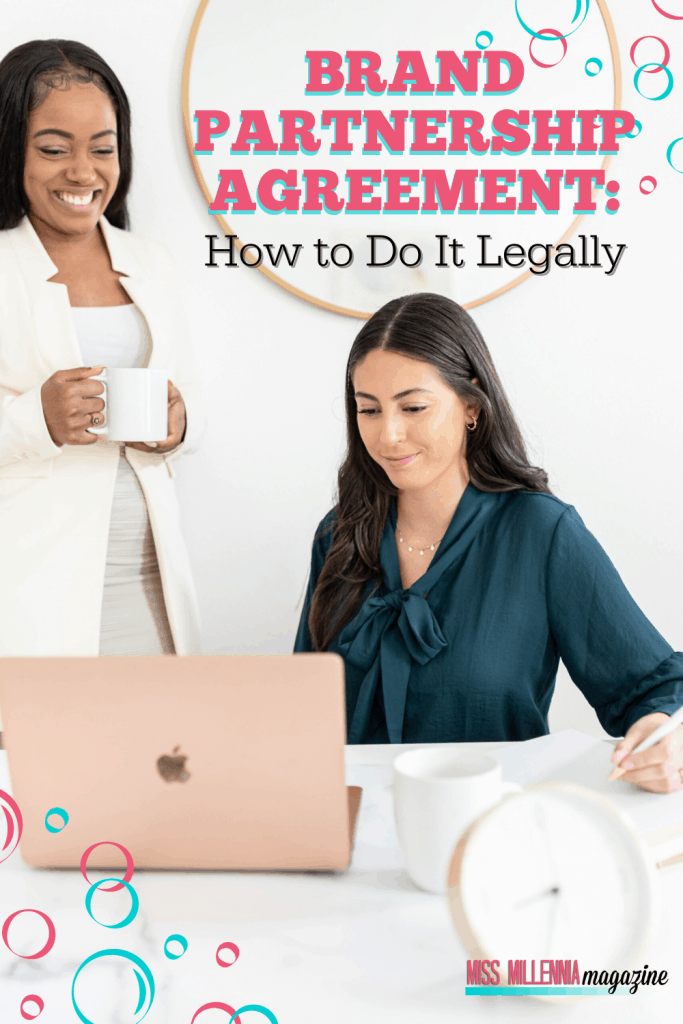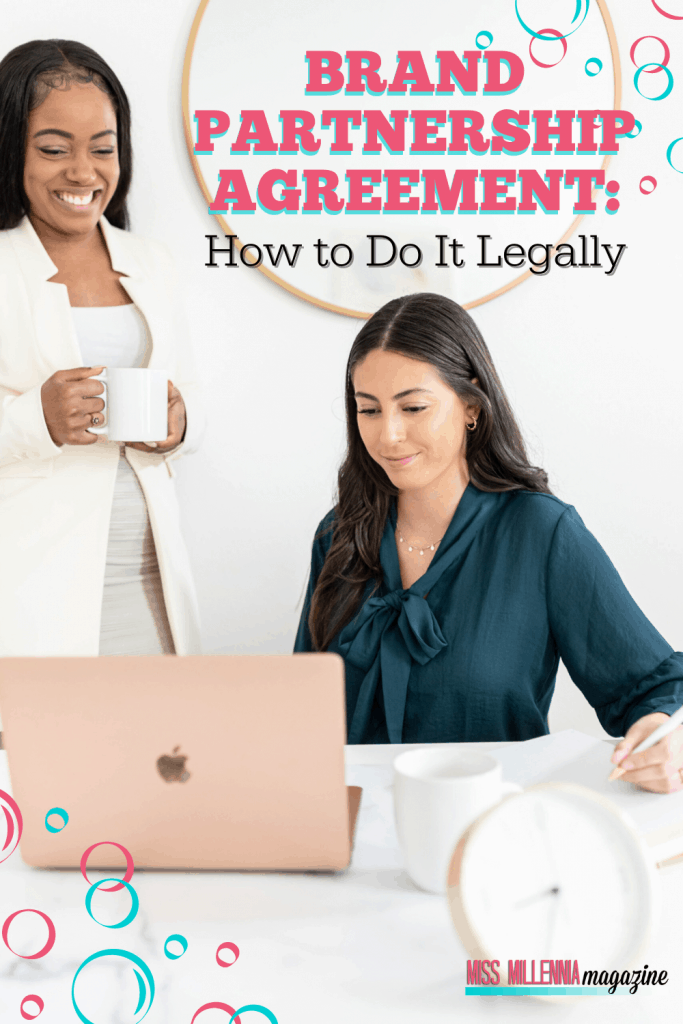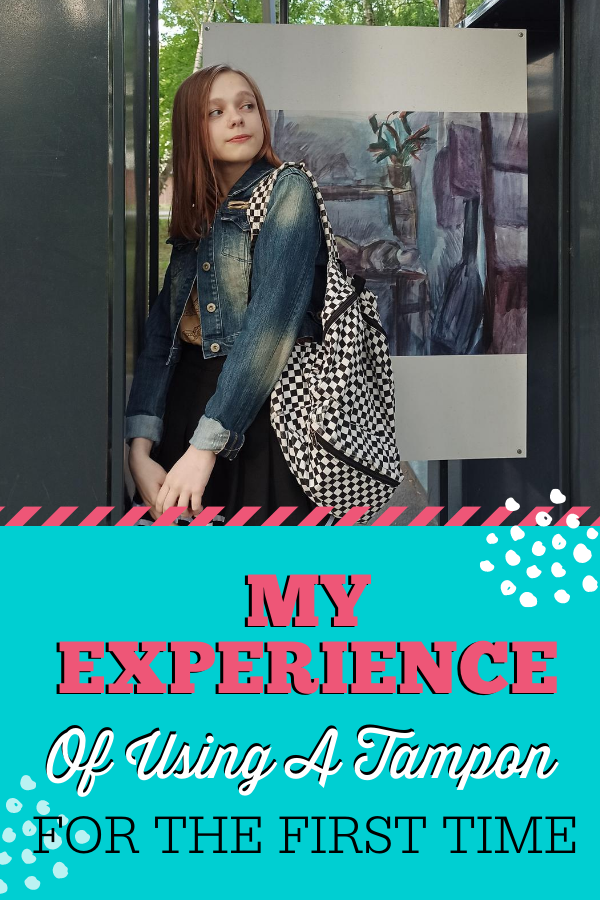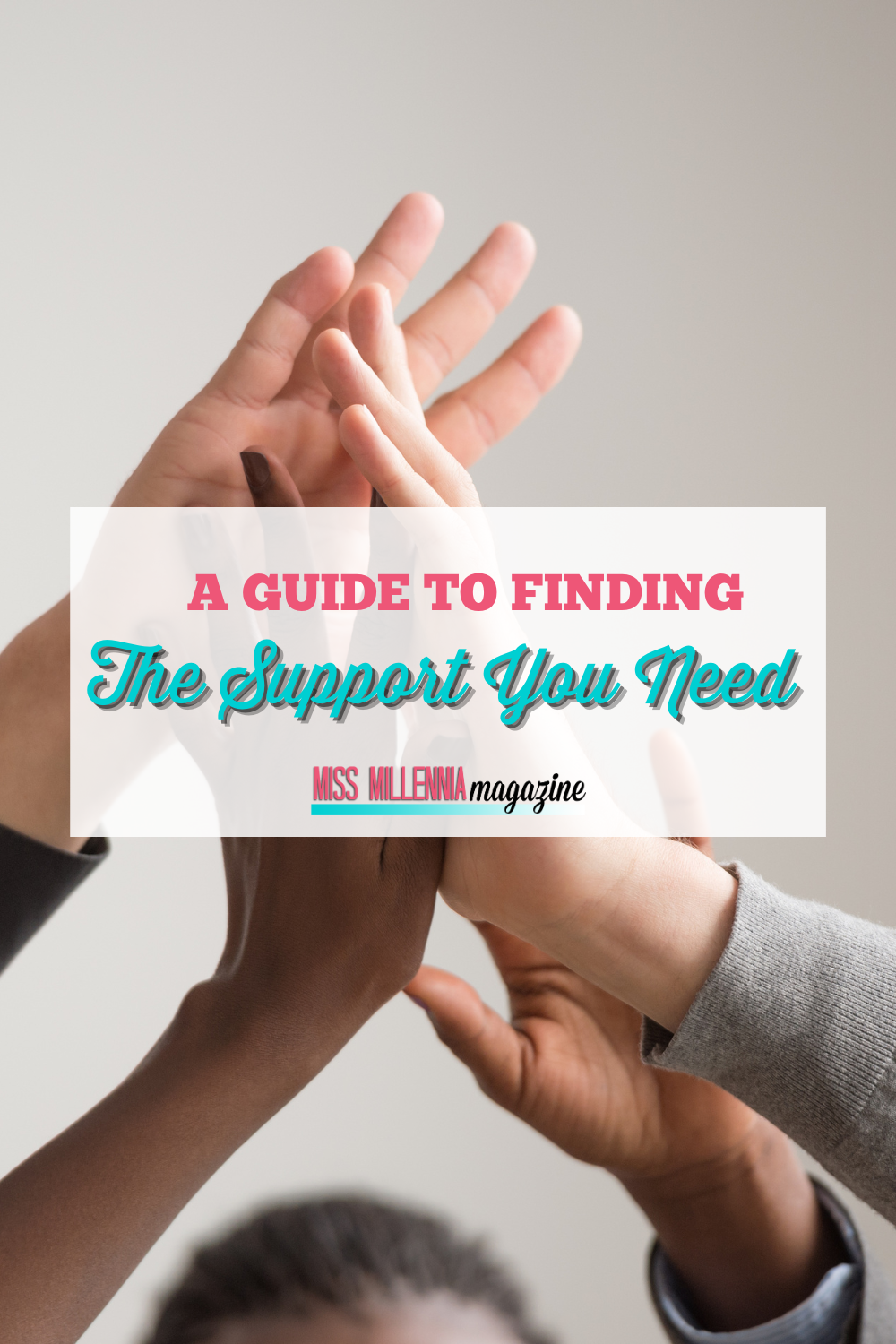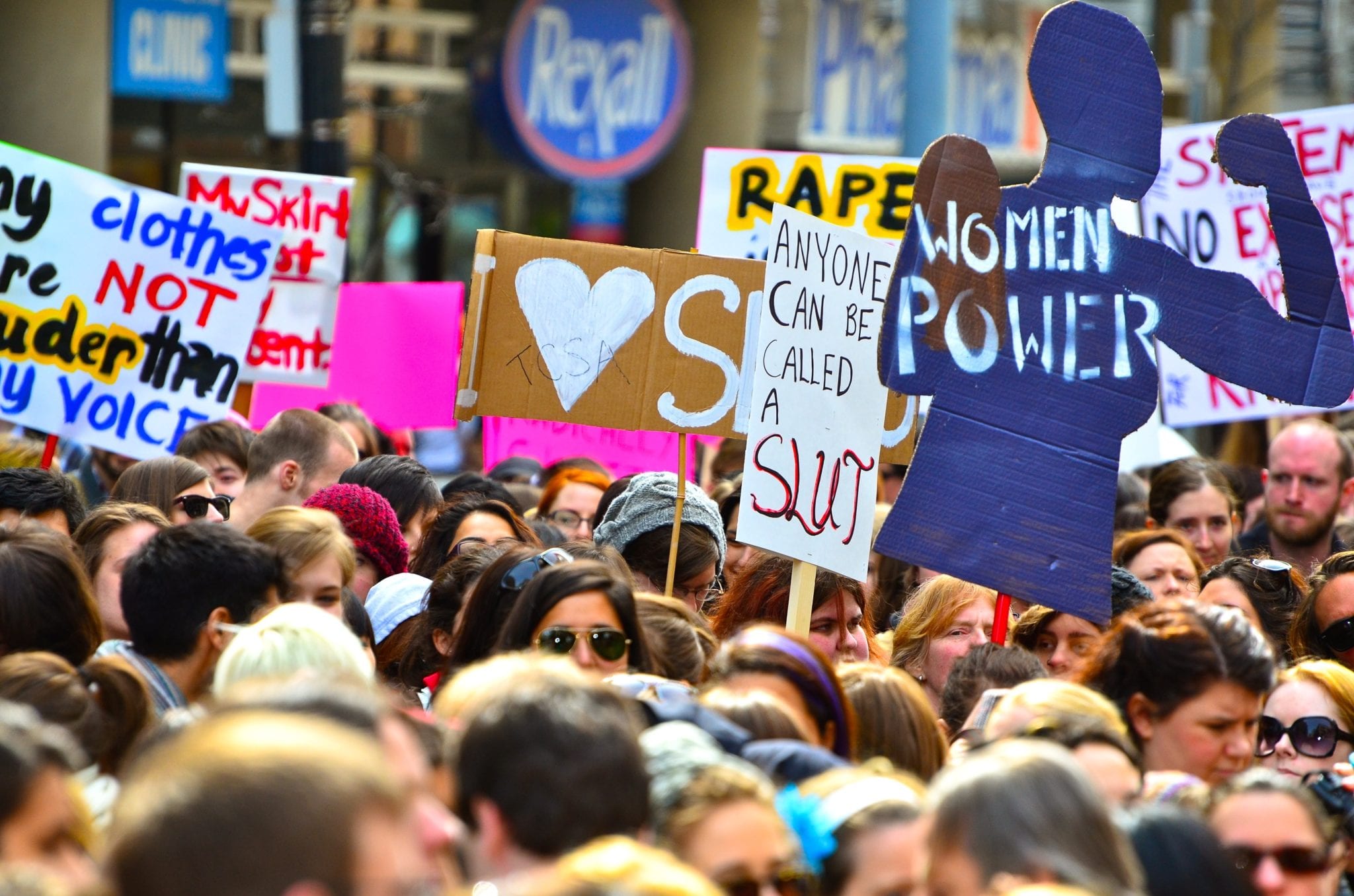Brand Partnership Agreement: How to Do It Legally

There’s no more incredible feeling than when your blog finally starts to take off. After many long nights of writing, editing, and planning your social media schedule, your blog finally has enough consistent traffic for other income opportunities and brand partnerships. But before you start signing up for any brand partnership agreement, affiliate programs, and sponsored posts, here are some critical things to remember.
Business Is All About Partnerships
We all understand how powerful business alliances can be. For new bloggers, securing a good partnership can boost your blog’s income and visibility. Brand partnerships also offer the added benefits of credibility and marketing for your blog. Studies have shown that a business can gain four times as much attention when it has a powerful brand backing the venture.

Case in point? In business, we need each other; however, knowing what you’re signing up for before diving headfirst into the pit can save you from a monster of a headache in the long run.
Types of Partnership Agreements
Your blog can engage in multiple types of brand partnerships, some as simple as affiliate link placement to more complex deals like charitable awareness. Here’s a list of joint brand partnerships out there for bloggers:
Affiliate Marketing Partnerships
Simply put, affiliate partnerships are partnerships when a company’s product is promoted in exchange for a monetary benefit. A perfect example is when Big Company pays Betty Blogger an agreed-upon amount in exchange for every referral that Betty Blogger sends to their website that purchases a product. These affiliate marketing programs are typically easy to join and range in compensation.
For example, Amazon pays its affiliates up to 10% commission. I have an affiliate program for my blog’s products in which affiliates are paid a generous 50% commission.
Brand Influencer Partnerships
More and more companies are making room in their advertising budget for influencer partnerships. ‘Influencers’ are individuals who already have a following of their own.
These are creative people who, by finding a niche they are passionate about, start creating relevant content and sharing it with their follower base. Thanks to the growing popularity of these people, many software companies launched influencer marketing platforms such as Grin, Humanz, and Upfluence with various features and filters to simplify the process for influencers and businesses. Humanz even enables one to connect with either the brand or the influencer and generate the whole campaign on its platform without transferring information from one place to another.
Brands looking to advertise their products partner with these influencers, hoping to tap into their audience. This highly coveted agreement can boost a company’s exposure practically overnight. It can be a long-term beneficial opportunity for the blogger and the brand.
Media Sponsorships
Like influencer partnerships, media sponsorships are ad campaigns where the company or individual signs an agreement to promote specific products or services to an audience through a media channel (TV, Radio, Online, Social Media, etc.). Bloggers and content creators may charge a fee for advertising on their sites to reach the intended audience. Many use this as a passive income stream.
What To Keep In Mind Before Signing a Partnership Agreement
Now that you know a few ways partnerships can benefit your blog, here’s what you need to know to keep you out of a crossfire legally. You want to be careful what you agree to more often than not; what you’re presented with initially may not be what you sign up for in the fine print.
#1- Have All Brand Partnership Agreements in Writing
I cannot stress this enough. Influencers, bloggers, and all content creators have a contract in writing. Many initial proposals are sent through direct messaging or email through social media, trying to establish contact.
Sometimes, they are followed up with a phone call depending on how well that call went. You might be tempted to give your consent to move forward in taking on the brand. Before you do, ask for a contract.
You may then be sent a lengthy contract detailing the deal’s specifics. Check and double-check everything you require; essential things like compensation are in writing.

Always be sure to have everything that you discussed in writing. Not only will this benefit both parties when a dispute arises, but when the time comes to (hopefully) renew the contract, you have a sounding board of what can and cannot be offered. From there, you can assess the ROI (return on investment) the partnership has on your brand. And decide if it is worth continuing.
Suppose the company tells you they do not have a contract. That is not ok. Offer to give them one. Too often, I have seen bloggers and influencers agree to things, do their part, and never get paid.
That is why I drafted my Sponsored Post/Influencer Agreement. I have written it as an honest lawyer and blogger and then turned it into a fully customizable, easy-to-use legal template that you can reuse as many times as you like.
Because contracts are drafted in legal jargon that most people are unfamiliar with, I have seen bloggers get screwed. They tend to overlook conducting a thorough review of the offer. If you are handed a lengthy contract and unsure about what is being asked of you or what to expect, speak to an attorney.
#2- Outline How Customer Data Will Be Presented
I wish there were more discussion, as customer data is crucial to partnership agreements. Let’s say you decide to take on a far-reaching brand partnership where your blog will be exposed to millions of current and potential customers. Let’s also say that said agreement requires product placement and access to the company’s media channels- WIN!
Now, you’ve done your part: created the content, provided the product placement, excited the brand, and you see the content take off. You go back to the company, show them the screenshots of the results, and then almost instantly, you get hit with the pushback of providing additional customer data before being paid out – excuse me?
Brand partnerships are solely a numbers game- drill this in. Each side wants to see how well the agreement is doing within the target audience, and this assessment determines how lucrative the partnership is. Most times, sending over screenshots of follower (or viewer) counts, audience reach, email signups, etc., can suffice. However, not all companies will accept screenshots.
When discussing the contract with your lawyer (or schedule a discovery call with me should you not have one), it clearly outlines how customer data will be shared, how often to submit information, and any additional details that need to be included. You will be surprised at the amount of leg work required to keep up with this, and depending on your agreement, your business may be solely responsible for providing all data.
#3- Handle A Breach of Contract With Grace
You may have heard a horror story or two of a company partnering with a well-known brand or celebrity and having contracts signed. Details are flushed out, only to be shortchanged, and their product or service not placed correctly to the intended audience. As viewers, we usually catch wind of this happening when the offended party takes to social media to air their grievances and provide ‘receipts’ of the issues. It’s usually a messy situation.
Should you agree with a brand and the content requested has not been created or reached its target audience as it should have, then that may be grounds for a breach of contract. However, before you head to social media to fume and air out dirty laundry, I ask that you pause, reflect, and get your attorney on the phone. This is because there are extreme consequences. Should you disclose information, you are legally bound to keep hush.
For example, your contract may have an NDA (Non-Disclosure Agreement) attached to it or may come with other disclosure agreements that may be grounds for a defamation or slander lawsuit to be filed against you -ouch! You can learn more about defamation with LegalVision NZ.
I will always recommend that should you come against any breach of contract, discuss this with your legal counsel before going to social media. Not only will it protect both you and your brand, but it will also protect your reputation, as we all know that nothing ever dies once it’s been made public on the internet.
If done correctly, brand partnerships can be a beautiful and life-changing opportunity for your business, and no two agreements are the same. Keep these three legal tips in mind (you can bookmark this post or Pin it!) when deciding to move forward on a partnership agreement, and as always, please keep all deals in writing.
This is a guest post by Crystallace Fenn. Crystallace is a blogger and practicing attorney who blogs over at HeyCrystallace.com.
